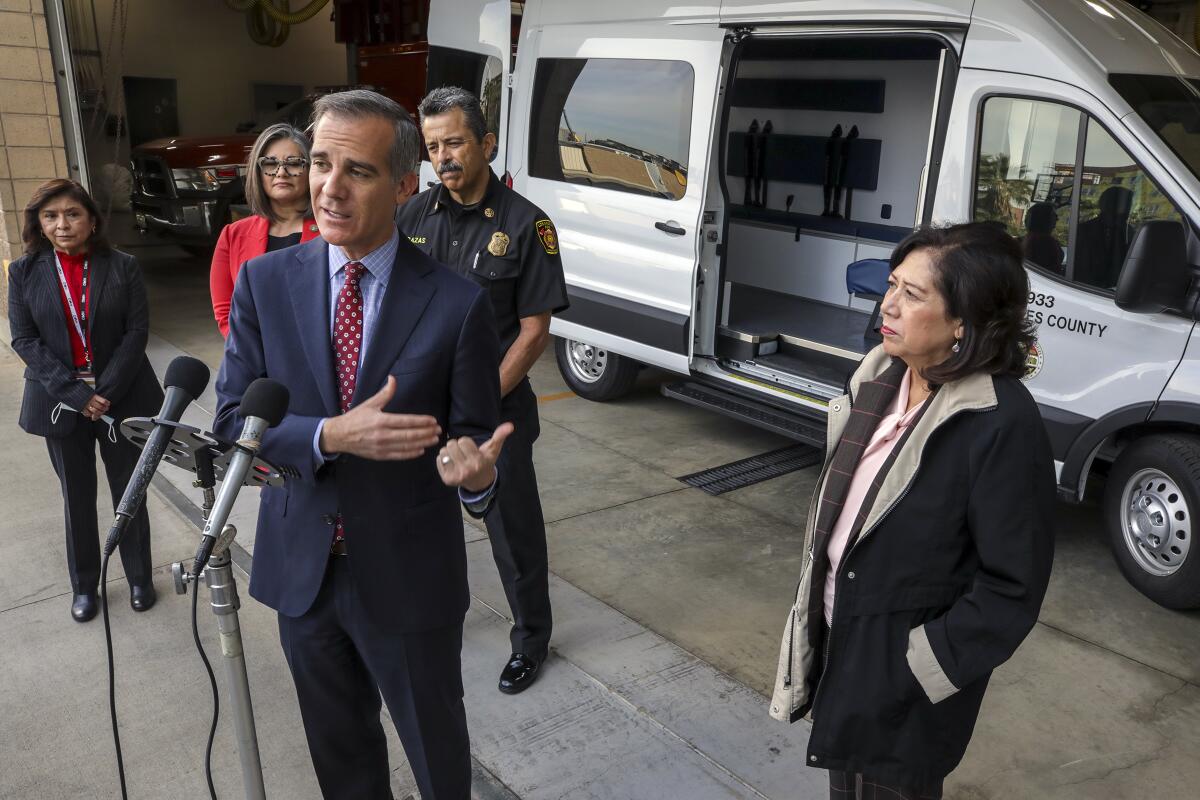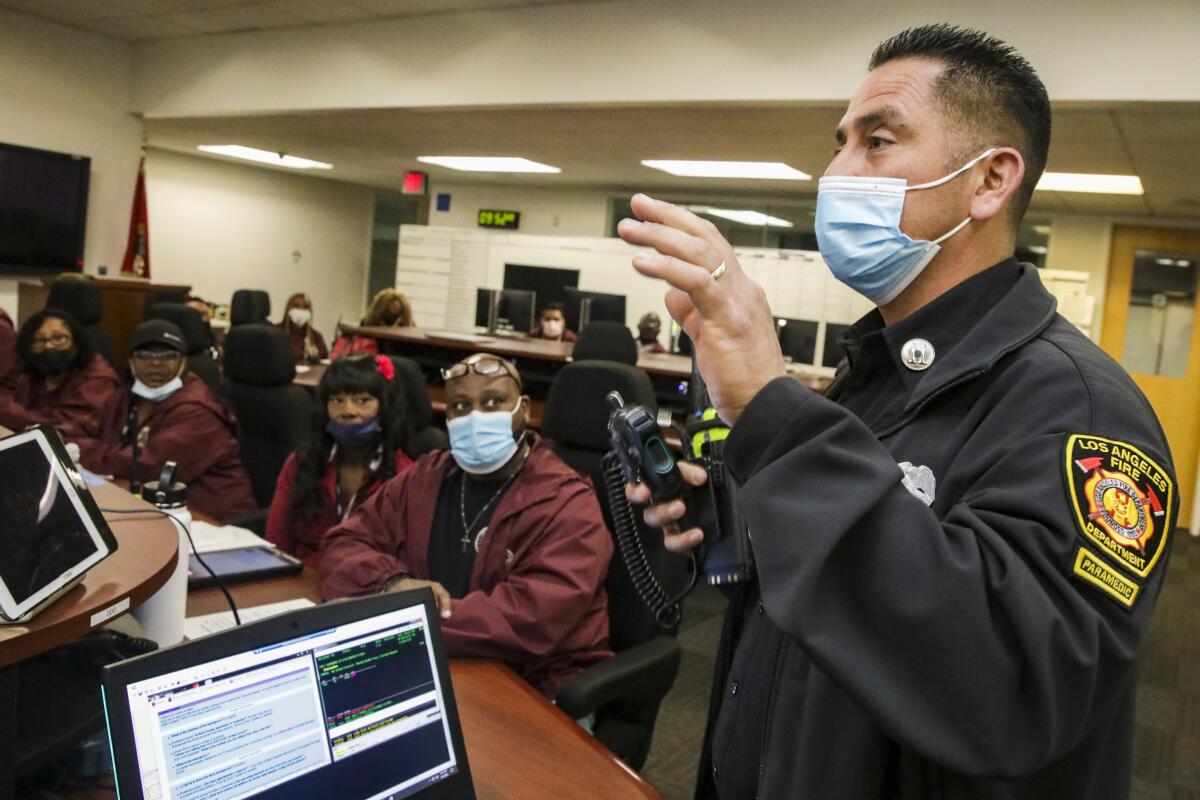L.A. city, county roll out pilot program that sends mental health workers to 911 calls

In an industrial corner of downtown by the Los Angeles River, a mental health response team drove around in search of a man described only as wearing a blue shirt.
Strapped to a seat in the back, 34-year-old Rafael Arias Delgado, a psychiatric technician, relayed the location to his teammates up front.
“It’s at the end of Banning Street,” he yelled.
The trio were among two dozen healthcare workers taking part in a mock training session Thursday to practice engaging mentally ill people in crisis who need treatment. In this case, the man in the blue shirt was a firefighter playing a role. The exercise came as city and county officials converged nearby at the Los Angeles Fire Department’s Station No. 4 to announce the launch of a pilot program for trained workers like Delgado, instead of law enforcement personnel, to respond to nonviolent emergency calls.
Officials say the Therapeutic Transportation program will be on call 24 hours a day and will connect people with mental health services. The idea of the program is to alleviate hospital overcrowding and allow police and firefighters to respond to calls they are best suited to handle.
Los Angeles Mayor Eric Garcetti said the response teams are akin to gang interventionists or suicide prevention and sexual abuse response teams that work alongside authorities.
“We know that mental health is best treated by mental health experts,” he said. “Oftentimes, seeing a badge can trigger people’s trauma even more.”
In L.A. and around the region, getting long-term care for mentally ill people is challenging; oftentimes they cycle through hospitals, psychiatric units and jails before they end up in the streets again. In worst-case scenarios, they have fatal encounters with police.
“It’s simply not acceptable,” Garcetti said. “It’s why the county and the city came together to kind of sharpen our pencils and say: what is a better system?”
The city of Los Angeles partnered with the County’s Department of Mental Health to launch the pilot.

The announcement of the program on Thursday coincided with Gov. Gavin Newsom’s unveiling of a plan to push more people with severe mental health and addiction disorders into court-ordered care that includes medication and housing.
The plan would require all 58 counties in the state to participate in the program through their civil courts. Local governments would face sanctions if they don’t comply with the requirements.
In that same vein, city and county officials say, the Therapeutic Transportation program has already shown promising results.
In the first month, Garcetti said, mental health workers have responded to 113 calls, about 20% of those calls ended with someone being treated and released at the scene. About 13% of those calls resulted in patients being taken to a hospital — an 80% decline from similar calls in the past, reducing pressure on overburdened emergency rooms. The remainder of the calls, the vast majority, resulted in patients being placed in alternative medical care facilities such as mental health clinics or drug treatment centers.
The mobile mental health response program will eventually include vans for each of the five county supervisorial districts. The next team is scheduled to start operating out of the LAFD’s Fire Station No. 59 in West Los Angeles this weekend.
Los Angeles Fire Chief Ralph Terraza said emergency dispatchers receive approximately 50,000 “psychological calls” to the LAPD and the LAFD.
“Now with this innovative resource, we can provide better care to mental health patients,” he said. “We can reduce the time that our paramedics are waiting in emergency rooms for an available bed, we can help ease overcrowding at the hospitals.”
While the results are early, he said, it’s shown that almost 70% of the time the therapeutic van will transport patients and relieve paramedics from the scene.
“It’s going to be a really good thing,” he said.
More to Read
Sign up for Essential California
The most important California stories and recommendations in your inbox every morning.
You may occasionally receive promotional content from the Los Angeles Times.











